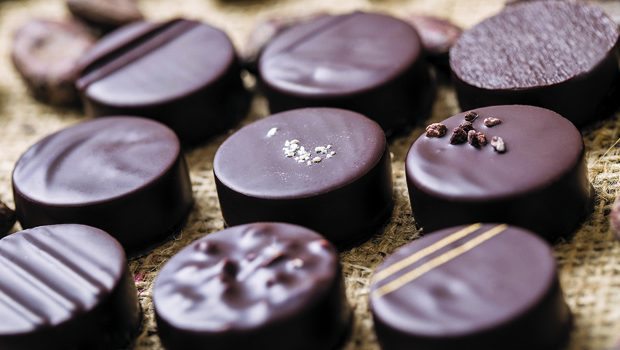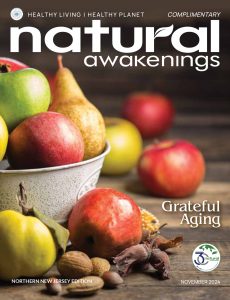Make this Valentine’s Day Super Sweet
The traditional Valentine’s Day goodie, chocolate attracts a lot of attention this time of year, and it’s nice to know that dark chocolate can actually be good for us. Varieties that contain 70 percent or more pure cacao contain many healthful and beneficial ingredients.
Some benefits come from high levels of tannins, flavonoids and polyphenols, all potent antioxidants that are also found in lower amounts in tea, red wine and apples. Dark chocolate also contains two important minerals; magnesium and copper. Magnesium is important in bone health and copper is necessary for nerve conduction.
Flavonoids help improve blood flow, aiding in the formation of nitric oxide, which helps relax and widen arterial walls so coronary arteries bring more oxygen to the heart. Antioxidants scavenge for free radicals, which are implicated in cancers. They also oxidize “bad” cholesterol, or LDL, preventing its incorporation into artery-blocking plaques. Studies have shown that eating dark chocolate increase “good”, HDL cholesterol in the body. Flavonoids are natural blood thinners which, like aspirin, allow platelets to slide through the system easier to prevent clots.
Chocolate is a mood elevator, promotes cognitive function and improves vision and reaction times. Dark chocolate provides long-lasting feelings of fullness and reduces cravings. This is just the opposite of what happens with milk or white chocolates, which cause spikes and then quick drops in blood sugar levels. Twenty milligrams of dark chocolate per day has been shown to help increase sensitivity to insulin, of benefit to those with pre-diabetes and diabetes. Oligomeric procyanidins has been shown to have a positive impact on glucose tolerance and weight control, also of interest to people with diabetes. Tannins, which give dark chocolate its slightly bitter taste, inhibit bacteria from sticking to our teeth to help prevent decay and gum disease.
Polyphenols neutralize the effects of bacteria in the mouth and gastrointestinal system. This can lead to better breath and less tooth decay. The theobromine in dark chocolate acts similar to caffeine, and may act as a bronchodilator, alleviating asthma symptoms. It also relaxes the sphincter muscle between the stomach and esophagus, which can aggravate reflux. Theobromine also acts to prevent tooth decay. The higher the cacao content, the better, with 70 percent at minimum. Cocoa powder has the highest concentration of beneficial antioxidants of any chocolate product.
When deciding on a chocolate treat or gift, choose wisely and enjoy the many health benefits of dark chocolate without the guilt or the cavities.
Dr. Michael Goldberg practices biorational dentistry at Manhattan Dental Health, with offices on Madison Ave., NY, and River Edge, NJ. To register for a free seminar, visit BodyWellnessSeminar.com or for more information, visit ManhattanDentalHealthNJ.com.

























